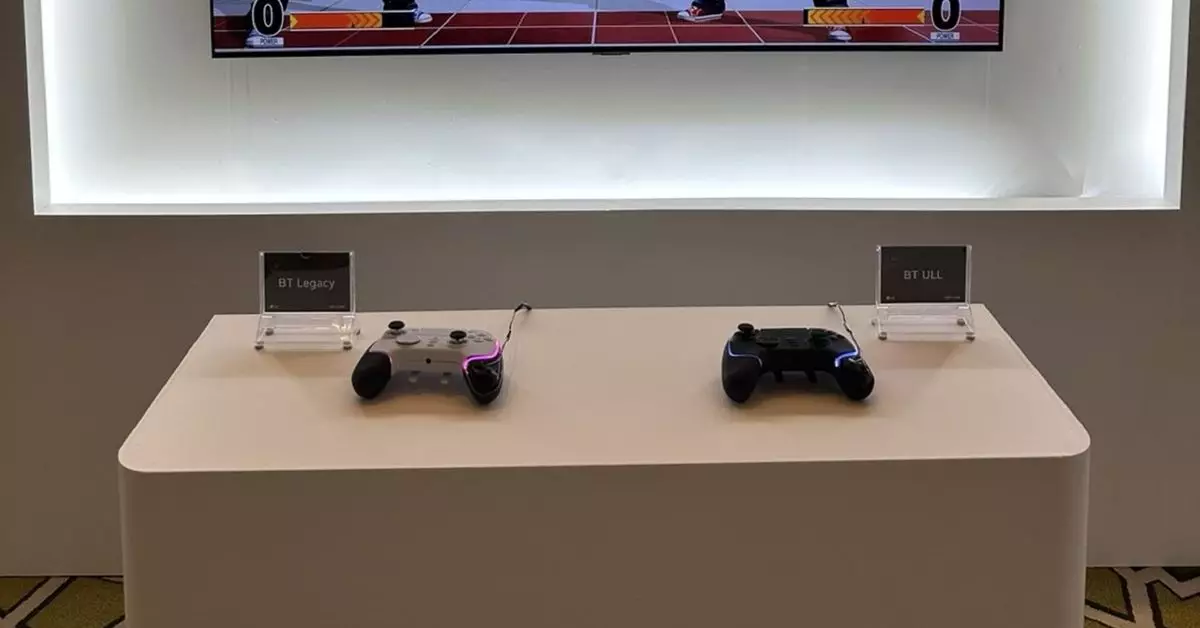The gaming industry is constantly evolving, with advancements designed to enhance user experiences and push the boundaries of technology. One of the latest innovations comes from a collaboration between LG, Razer, and MediaTek, focused on creating a Bluetooth gaming controller that promises to minimize input lag. This new standard, termed Ultra-Low Latency (ULL) Bluetooth, aims to bridge the gap between wireless convenience and wired precision, a critical requirement for cloud-based gaming.
One of the most prominent challenges in gaming, particularly in fast-paced genres like first-person shooters and racing games, is input lag. While wired controllers generally offer lower latency, leading competitive gamers to prefer them, there’s a growing demand for wireless alternatives that do not compromise response time. Lag of 10-20 milliseconds is often deemed acceptable for casual gameplay, but the competitive scene necessitates even more precision. The introduction of Razer’s ULL Bluetooth technology aims to dramatically reduce input lag to an impressive 1 millisecond, a figure that could alter the gaming landscape.
During a recent exhibit at the webOS Summit, LG presented a demonstration to showcase the effectiveness of their ULL technology against a standard controller. Their claims highlighted improved responsiveness and accuracy across a range of gaming genres, indicating that the technological advancements being utilized may offer a significant advantage to users. This demonstration not only served as a validation for their development but also illustrated the practical benefits of the ULL standard in real-world gaming scenarios.
The ULL controllers will be integrated into LG’s forthcoming 120Hz OLED and mini-LED televisions, which are set to utilize MediaTek’s MT7921 Wi-Fi chipset. This hardware collaboration indicates that the gaming experience will be optimized beyond the controller itself, emphasizing a holistic approach to reducing latency across devices. The rollout is expected in 2025, but enthusiasts will eagerly await early benchmark results and hands-on reviews leading up to the official release.
Google’s prior efforts with its Stadia service to alleviate controller latency via direct Wi-Fi connections serve as a testament to the gaming community’s ongoing struggle with this issue. Even after Stadia’s closure, the subsequent update allowing Bluetooth use demonstrates the demand for versatile gaming solutions. The current initiatives by LG and Razer position them not just as competitors, but as innovators in an evolving ecosystem that understands the needs of modern gamers.
Looking ahead, LG is establishing a certification program for third-party controllers that meet the ULL standards, aiming to ensure seamless compatibility with their TVs. Razer’s controller will be the first to receive this qualification, paving the way for other manufacturers to follow suit. Although details regarding pricing and availability remain under wraps, the upcoming Consumer Electronics Show (CES) promises to unveil more information that could set the stage for this technology.
As LG, Razer, and MediaTek set out to refine gaming experiences through their Ultra-Low Latency Bluetooth technology, the gaming world stands at the brink of a potential revolution. With hopes of transcending traditional limits on wireless input lag, the debut of these innovations could mark a transformative leap in the cloud gaming arena, eagerly awaited by both developers and players alike. The future of competitive gaming may soon be defined not just by skills, but by the latency of the technology wielded by players.


Leave a Reply
You must be logged in to post a comment.